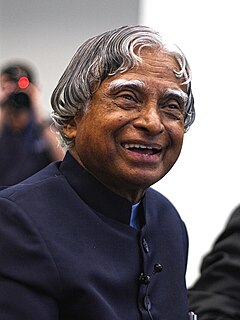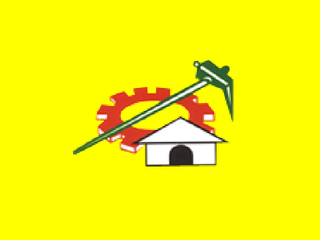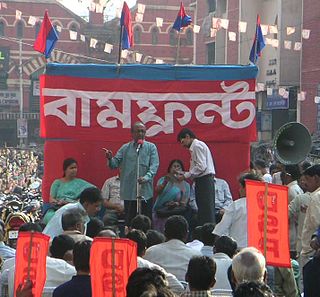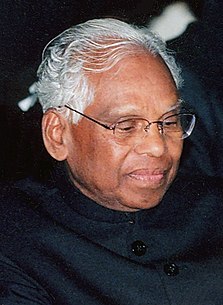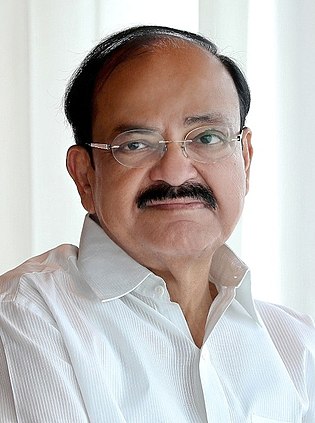
The Communist Party of India (Marxist) is the largest communist party in India. The party emerged from a split from the Communist Party of India in 1964. The CPI(M) was formed at the Seventh Congress of the Communist Party of India held in Calcutta from 31 October to 7 November 1964. As of 2018, CPI(M) is leading the state government in Kerala and having elected members in 8 state legislative assemblies including Kerala, West Bengal, Tripura, Himachal Pradesh, Maharashtra, Odisha, Jammu & Kashmir, and Rajasthan. It also leads the West Bengal Left Front. As of 2016, CPI(M) claimed to have 1,048,678 members. The highest body of the party is the Politburo.

The All India Forward Bloc (AIFB) is a left-wing nationalist political party in India. It emerged as a faction within the Indian National Congress in 1939, led by Subhas Chandra Bose. The party re-established as an independent political party after the independence of India. It has its main stronghold in West Bengal. The party's current Secretary-General is Debabrata Biswas. Veteran Indian politicians Sarat Chandra Bose and Chitta Basu had been the stalwarts of the party in independent India.
Events in the year 2002 in the Republic of India.
Events in the year 1997 in the Republic of India.

Revolutionary Socialist Party (RSP) is a political party in India. The party was founded on 19 March 1940 and has its roots in the Bengali liberation movement Anushilan Samiti and the Hindustan Socialist Republican Army. The party got around 0.4% of the votes and three seats in the Lok Sabha elections in 1999 and 2004. It is part of the Left Front (Tripura).
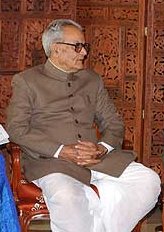
Bhairon Singh Shekhawat was the 11th Vice President of India. He served in that position from August 2002, when he was elected to a five-year term by the electoral college following the death of Krishan Kant, until he resigned on 21 July 2007, after losing the presidential election to Pratibha Patil. Shekhawat was a member of the Bharatiya Janata Party (BJP), a leading member of the National Democratic Alliance at the time of election. He served as the Chief Minister of Rajasthan three times, from 1977 to 1980, 1990 to 1992 and 1993 to 1998.

Vijaya Lakshmi Pandit was an Indian diplomat and politician, the sister of Jawaharlal Nehru, the aunt of Indira Gandhi and the grand-aunt of Rajiv Gandhi, each of whom served as Prime Minister of India. Pandit was sent to London, as India's most important diplomat, after serving as Nehru’s envoy to the Soviet Union, the USA and the United Nations. Her time in London offers insights into the wider context of changes in Indo–British relations. Her High-Commissionership was a microcosm of inter-governmental relations.

Najma Akbar Ali Heptulla is an Indian politician and the current Governor of Manipur and the Chancellor of Jamia Millia Islamia. She is a former vice-president of the Bharatiya Janata Party (BJP), and a six time member of the Rajya Sabha, the Upper House of the Indian parliament, between 1980 and 2016, and Deputy Chairman of the Rajya Sabha for sixteen years. She was a member representing Rajasthan from July 2004 to July 2010. She was nominated by the BJP for the Rajya Sabha in 2012 from Madhya Pradesh, and assumed her office on 24 April 2012.

The Election Commission of India held indirect 13th presidential elections of India on 19 July 2007. Pratibha Patil with 638,116 votes won over her nearest rival Bhairon Singh Shekhawat who got 331,306 votes. This result meant that Pratibha Patil became the first female President of India.

The 14th indirect presidential election, in order to elect the 13th president, was held in India on 19 July 2012. The last date for filing nominations was 30 June, whereas the votes would be counted on 22 July. The two leading candidates for the presidency were former Finance Minister Pranab Mukherjee from West Bengal and former Speaker of the Lok Sabha Purno Agitok Sangma from Meghalaya.
Vasagiri Venkata Lakshminarayana is a retired Additional Director General of Police in Mumbai, Maharashtra. He is known for leading the investigations like OMC Scandal, Emaar Properties, Y S Jagan Mohan Reddy Case ,Satyam Scandal and Disproportionate Assets. He had previously held the post of Joint Commissioner of Police of Thane, Maharashtra and before that as Inspector general of police Rank under Y-category security for dealing with high-profile corruption cases. He joined Jana Sena Party in March, 2019.
Abdul Kalam Vision India Party is an Indian political party, formally launched on 28 February 2016. The party was launched in the name of former president A.P.J. Abdul Kalam, by V. Ponraj, who was the scientific adviser to Kalam. However, the family of A.P.J. Abdul Kalam expressed their displeasure over the party using the Kalam's name and portrait.


